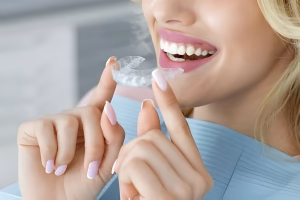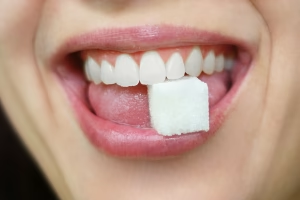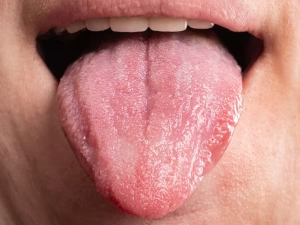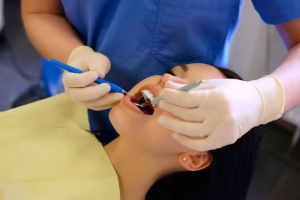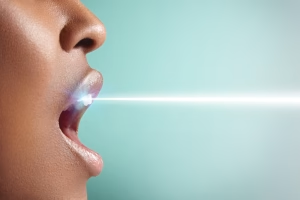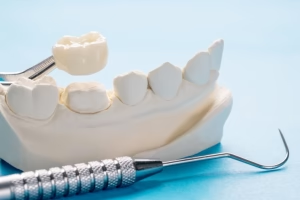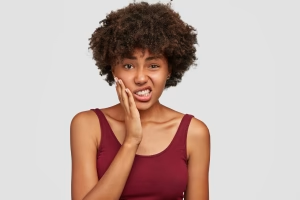How To Reduce Sleep Apnoea with Orthodontics Treatments
29 June 2018
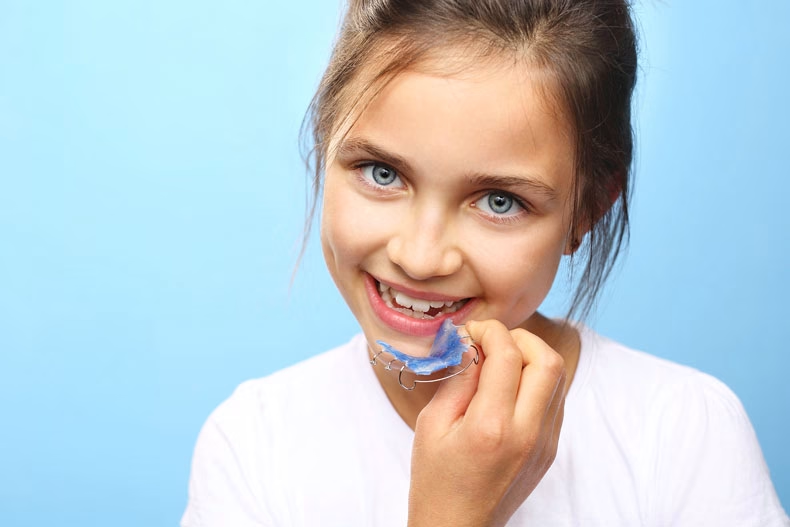
Crooked teeth and bite issues can be a serious problem, affecting more than just your appearance. When thinking about getting braces, people primarily focus on making their smiles beautiful. But, what many people do not know is that braces, and orthodontics in general, can do much more for you than improving your smile and self-esteem.
This might come as a surprise, but oral health is closely connected to sleep quality. For patients who have trouble sleeping because of sleep apnoea and snoring, orthodontics treatments can improve the quality of sleep. Let’s see how.
How sleep troubles begin
When in deep sleep, it is perfectly normal to for face and jaw muscles to fully relax. This is not the problem by itself. But, when you sleep on your back, the position of your jaw changes and slides backwards. This causes your throat to narrow and vibrate when air moves through it. Others hear this as snoring, an unpleasant sound that varies in volume and quality. Snoring should never be ignored as it may be a sign of obstructive sleep apnoea. It also causes sleep deprivation and issues such as lack of focus, daytime drowsiness, irritability, various psychological issues etc.
The dental issue that makes snoring worse
Those who have irregular bite may be especially prone to snoring and sleep apnoea. Bite issues are pretty common and include overbite, underbite and open bite. Overbite is when upper front teeth extend over the lower front teeth; underbite is when the lower teeth rest in front of the upper teeth; open bite is when upper and lower teeth do not overlap. Luckily, braces can help. They make teeth properly aligned and sort out the overbite and underbite issues. This improves mouth airflow, reduces obstruction and helps with sleep apnoea and snoring, increasing your general health and sleep quality.
Other consequences of having an underbite
Even if you don’t have sleep apnoea, bite issues can lead to TMJ disorders. These disorders include symptoms such as jaw pain, pain in temporomandibular joints, pain in and around your ear, headaches and difficulties chewing. These symptoms, combined with high sleep apnoea risk are an alarm for a patient to see an orthodontic specialist. If you are living on the Gold Coast and Brisbane area, call us at MGA Dental. We offer an extensive range of dental services including orthodontics. The consultation is always free and you have nothing to lose by scheduling your checkup. We will determine whether your teeth are aligned and if the bite is healthy – if not, we will recommend an orthodontic treatment.
Treating underbites with RPE devices
RPE, or rapid palate expander, is an orthodontic device that dentists attach to the roof of the mouth in order to widen the upper jaw. The best results are achieved when the expander is worn in childhood, as children’s palate bones are not yet fused and it is easier to move them and create some extra space. Eventually, the upper jaw will align with the bottom jaw and underbite won’t make any more problems when sleeping. Palate expanders also allow better airflow through the sinuses. In some cases, if it is suspected that the jaw will not be spacious enough to hold permanent teeth, the expander might be used without braces.
Using custom oral appliances
Oral appliance therapy is a way of dealing with sleep issues directly. The purpose of custom-fit oral appliances is similar to the one of the orthodontic braces. Custom fit appliances help keep the jaw in a forward position and thanks to them, your upper airway always remains open. There are two types of appliances: mandibular advancement devices and tongue retaining mouthpieces. They are quite similar, but tongue retainers consist of one more piece that keeps the tongue positioned forward. Mandibular advancement splint moves the lower jaw forward, tightens the soft tissue and muscles of the upper airway, preventing the airway obstruction.
Benefits and downsides of oral appliance treatment
Let’s go back to sleep apnoea for a bit and explain why it is so dangerous. People with this condition have frequent breathing pauses during sleep and reduced oxygen levels. This leads to sleep deprivation, and all these consequences can lead to a wide variety of health problems if the issue is not corrected. If you allow braces to fix your bite fully, the chances of having sleep issues caused by oral problems are reduced to a minimum. Braces might be uncomfortable to wear, but this is only for a limited amount of time. Compared to oral appliances that need to be worn every night, the level of discomfort during wearing braces is minimal. This is why braces are the best way to ensure you have a healthy smile and sound night’s sleep.

